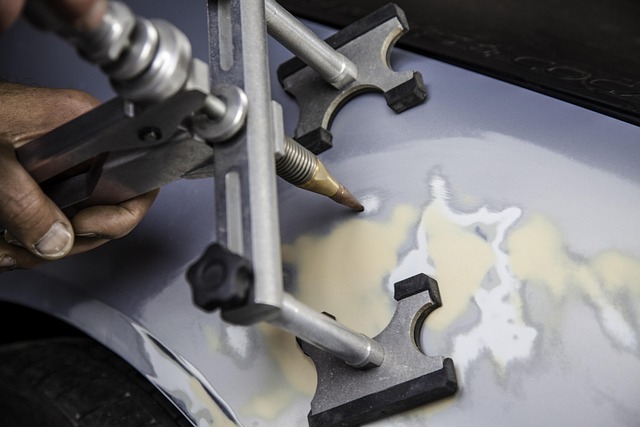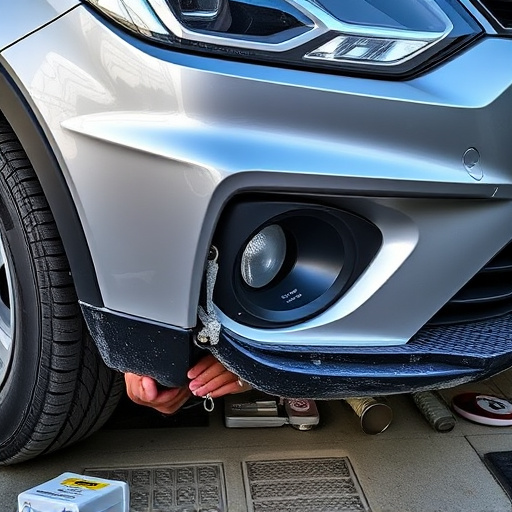Delay concerns in collision repair significantly impact insurance claims processing, causing inconveniences and financial implications for policyholders and insurers alike. Factors like scheduling conflicts, parts availability, and weather conditions contribute to extended repairs. Efficient dent repair services play a crucial role in expediting claims by providing accurate assessments and transparent communication about timelines, ensuring faster compensation. Insurance companies and service providers are adopting streamlined processes, improving communication, utilizing digital platforms, and prioritizing auto body restoration with qualified specialists to mitigate delay concerns and benefit both policyholders and insurers.
Collision repair delays significantly impact insurance claims processing, leading to frustration for both policyholders and insurers. This article delves into the root causes of these delays, focusing on key delay concerns collision repair processes often face. From logistical challenges to parts availability issues, we explore how these factors slow down repairs and affect claim settlements. Additionally, we provide strategies to mitigate risks and streamline the claims process, ensuring faster, more efficient resolutions for all parties involved.
- Understanding Delay Concerns in Collision Repair
- The Impact of Delays on Insurance Claims Processing
- Mitigating Delay Risks and Streamlining the Claims Process
Understanding Delay Concerns in Collision Repair

Delay concerns in collision repair can significantly impact the process of insurance claims. When a vehicle is involved in an accident, swift and efficient repairs are crucial for getting back on the road quickly. Delays can arise due to various factors such as scheduling conflicts at the auto dent repair or fender repair shop, availability of parts, or even weather conditions that disrupt work progress.
These delays not only inconvenience the policyholder but also have financial implications. Insurance companies often have stipulated time frames within which claims must be processed and repairs completed. Prolonged wait times can lead to increased claim costs for both the insurer and the policyholder due to rental car expenses, extended garage stays, and potential depreciation of the vehicle during the repair process. Understanding these delay concerns is essential in managing expectations and ensuring a smoother claims settlement process at collision repair shops.
The Impact of Delays on Insurance Claims Processing

When a vehicle collision occurs, timely collision repair is essential for several reasons, including its direct impact on insurance claims processing. Delays in fixing the damaged vehicle can significantly slow down the entire claim process. Each day that passes without repairs means additional costs for the insured, as temporary transportation arrangements and rental car expenses may be covered under their policy but only for a limited period. Furthermore, insurers often consider delays an indication of potential fraud or lack of genuine repair needs.
In the context of collision repair, auto collision centers play a crucial role in streamlining the claims process. Efficient vehicle dent repair services can help expedite the settlement of insurance claims by providing accurate assessments and transparent communication about repair timelines. This, in turn, ensures that insured individuals receive their compensation faster, minimizing financial setbacks caused by unexpected delays in their collision repair journey.
Mitigating Delay Risks and Streamlining the Claims Process

To mitigate delay risks associated with collision repairs, insurance companies and service providers are increasingly adopting streamlined claims processes. This involves enhancing communication channels between all parties involved—insurers, repair shops, and policyholders—to ensure everyone is on the same page from the initial claim filing to final settlement. Implementing digital platforms for claim tracking and documentation reduces paperwork, expedites information exchange, and minimizes errors that could lead to delays.
Additionally, prioritizing auto body restoration and car body repair services with qualified professionals who specialize in auto dent repair can significantly cut down turnaround times. Efficient processes, coupled with competent technicians skilled in modern repair techniques, ensure that vehicles are restored to pre-accident condition promptly. This not only benefits policyholders by getting them back on the road faster but also helps insurers manage their claims efficiently, potentially reducing costs and enhancing customer satisfaction.
Delay concerns in collision repair can significantly impact insurance claims processing, leading to increased costs, frustration for policyholders, and potential disputes. By understanding these delays and their causes, insurers and repair shops can work together to mitigate risk and streamline the claims process. Implementing efficient communication, clear guidelines, and innovative technologies can help reduce turnaround times, ensuring a smoother experience for all involved parties and fostering trust in the insurance industry.














